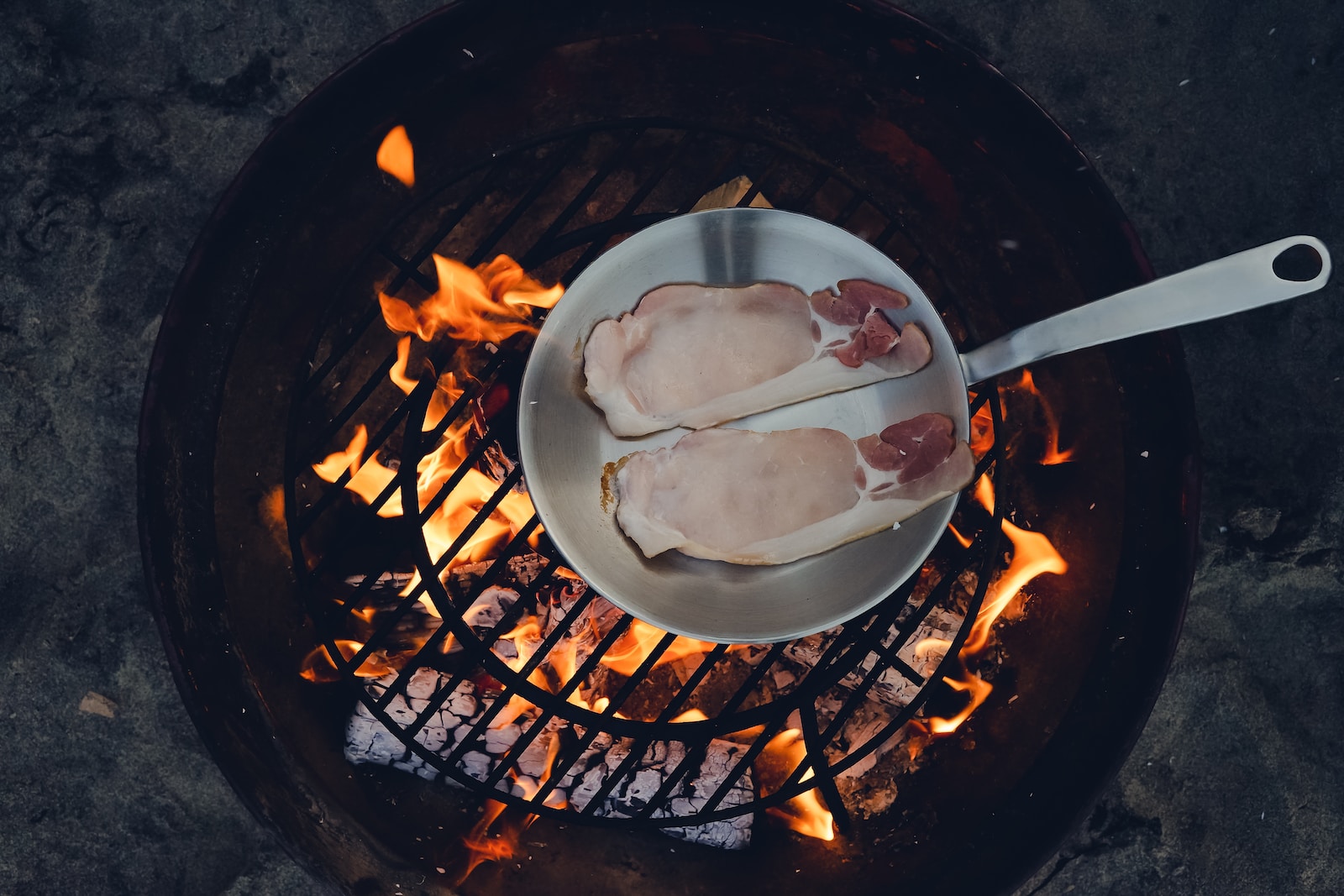The beach is a popular destination for summer fun, and for many, grilling is an essential part of that experience.
However, before firing up the grill on the sandy shores, it’s important to know whether it’s allowed and safe to do so.
Many beaches have specific rules and regulations regarding grilling, and there are also environmental and safety considerations to keep in mind.
In this article, we will explore the topic of grilling at the beach, from the types of grills that are suitable to the food safety considerations that are essential for a safe and enjoyable beach grilling experience.
Whether you’re a seasoned griller or a first-timer, read on to learn everything you need to know about grilling at the beach.
Overview of Grilling at the Beach
Grilling at the beach is a popular pastime enjoyed by many people around the world.
It involves cooking food over an open flame using a portable grill or barbecue, typically on the sandy shores of a beach.
This activity allows people to enjoy the beautiful scenery and ocean views while indulging in delicious, freshly grilled meals.
However, there are certain precautions that must be taken when grilling at the beach to ensure safety and prevent damage to the environment.
It is important to follow local rules and regulations regarding beach grilling, bring the proper equipment, and clean up after yourself to leave the beach in its natural, pristine state.
With proper planning and consideration, grilling at the beach can be a fun and memorable experience for all.
What Type of Grill to Use at the Beach
When it comes to grilling at the beach, choosing the right type of grill is crucial for both safety and convenience.
Portable grills are the best option, as they are easy to transport and set up on sandy shores.
Charcoal grills, propane grills, and electric grills are the three main types of grills that can be used at the beach.
Charcoal grills are popular due to their smoky flavor, but they can be messy and require more time to set up and light.
Propane grills are efficient and easy to use, but they can be heavy and cumbersome to carry around.
Electric grills are lightweight and easy to use, but they require a power source, which may not always be available at the beach.
It is important to choose a grill that is appropriate for the size of your group and the amount of food you plan to cook, as well as one that complies with any local regulations regarding beach grilling.
Ultimately, the best grill for the beach is one that is safe, easy to use, and produces delicious, grilled food.
Rules and Regulations for Grilling at the Beach
The rules and regulations for grilling at the beach may vary depending on the location and local authorities. Here are some general guidelines to follow:
Check for local regulations
Some beaches may have specific rules and regulations regarding grilling, such as designated grilling areas or restrictions on the type of fuel that can be used.
Check with the local authorities before heading to the beach.
Keep a fire extinguisher nearby
In case of an emergency, keep a fire extinguisher nearby and know how to use it.
Keep the grill away from flammable objects
Keep the grill at a safe distance from beach umbrellas, towels, and other flammable objects.
Dispose of charcoal properly
If using a charcoal grill, ensure that the charcoal is completely extinguished before disposing of it in a proper trash receptacle.
Clean up after yourself
Leave the beach cleaner than you found it by properly disposing of all trash, including any leftover charcoal or food scraps.
Be considerate of others
Keep noise levels to a minimum and be mindful of other beach-goers when grilling.
By following these rules and regulations, you can enjoy a safe and responsible beach grilling experience while also respecting the environment and other beach-goers.
Food Safety Considerations for Grilling at the Beach
Grilling at the beach can be a fun and enjoyable experience, but it is important to keep food safety in mind to prevent foodborne illnesses.
Here are some food safety considerations to keep in mind when grilling at the beach:
Keep food cold
Transport food in a cooler with ice packs to keep it at a safe temperature until it is time to cook.
Thaw meat beforehand
Thaw frozen meat in the refrigerator or microwave before cooking to ensure that it cooks evenly.
Separate raw and cooked foods
Use separate utensils and plates for raw and cooked foods to prevent cross-contamination.
Cook food thoroughly
Use a meat thermometer to ensure that meat is cooked to a safe internal temperature, which is 160°F (71°C) for ground beef and 165°F (74°C) for poultry.
Store leftovers properly
Leftover food should be refrigerated within two hours of cooking, or within one hour if the temperature is above 90°F (32°C).
Keep hands and surfaces clean
Wash hands with soap and water before and after handling food, and clean surfaces and utensils with hot, soapy water.
FAQs
Is grilling allowed at all beaches?
Some beaches may allow grilling in designated areas, while others may not allow it at all. It’s important to check with the local authorities before bringing a grill to the beach.
What type of grill is best for the beach?
Portable grills are the best type of grill to use at the beach. Charcoal, propane, and electric grills are all suitable options, but each has its own advantages and disadvantages.
What are the rules and regulations for grilling at the beach?
Some general guidelines include using a portable grill, keeping a fire extinguisher nearby, keeping the grill away from flammable objects, disposing of charcoal properly, and cleaning up after yourself.
What food safety considerations should be kept in mind when grilling at the beach?
Food safety considerations when grilling at the beach include keeping food cold, separating raw and cooked foods, cooking food thoroughly, storing leftovers properly, and keeping hands and surfaces clean.
Can you grill at the beach on a windy day?
Grilling at the beach on a windy day can be dangerous, as the wind can blow embers and flames around, potentially causing a fire. It’s important to check the weather forecast before grilling at the beach and to avoid grilling on particularly windy days.

